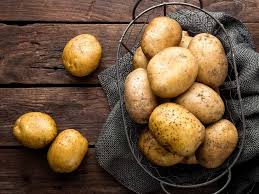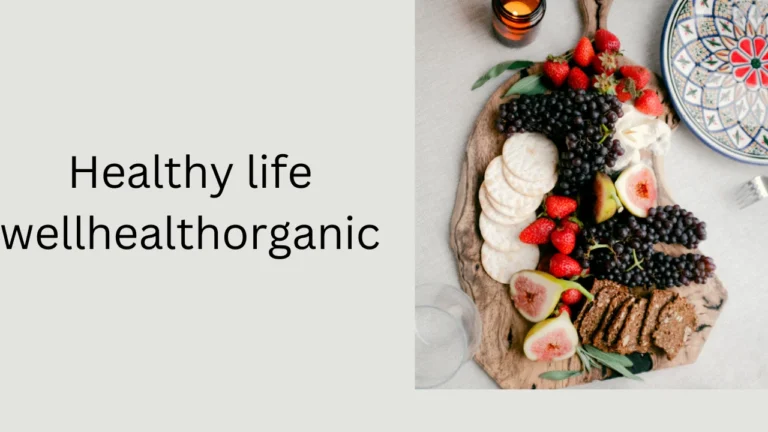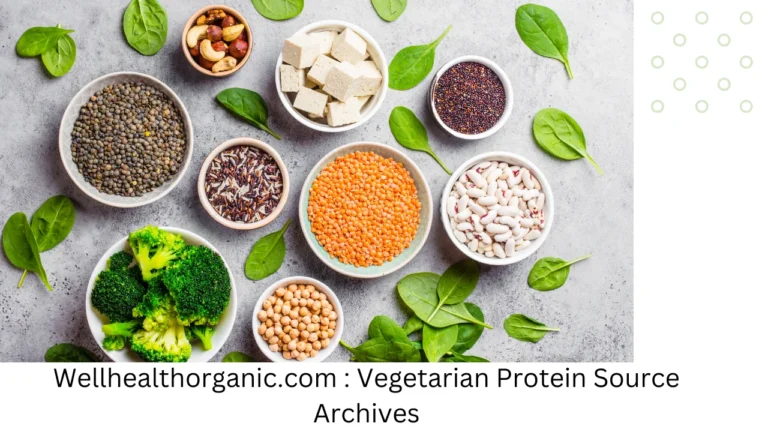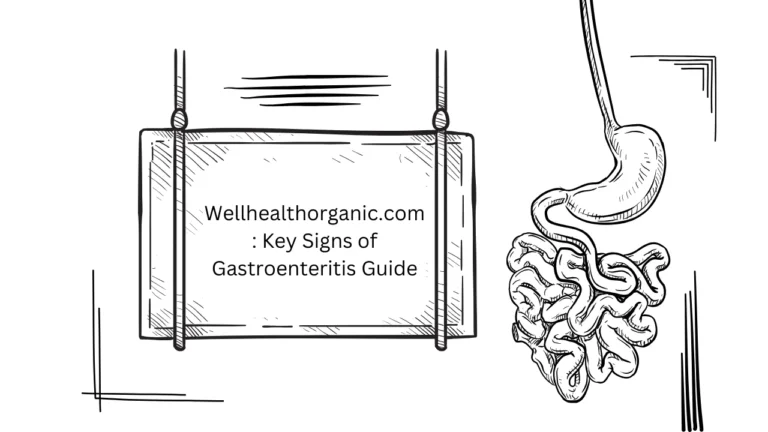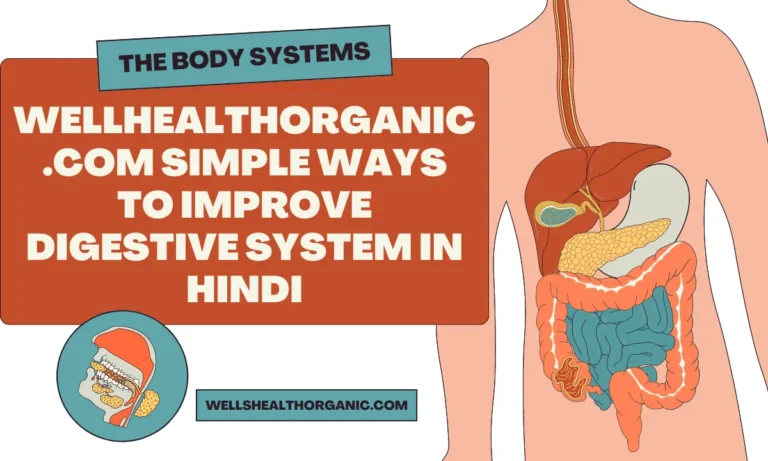Wellhealthorganic.com : Eat Protein Foods for Weight Loss
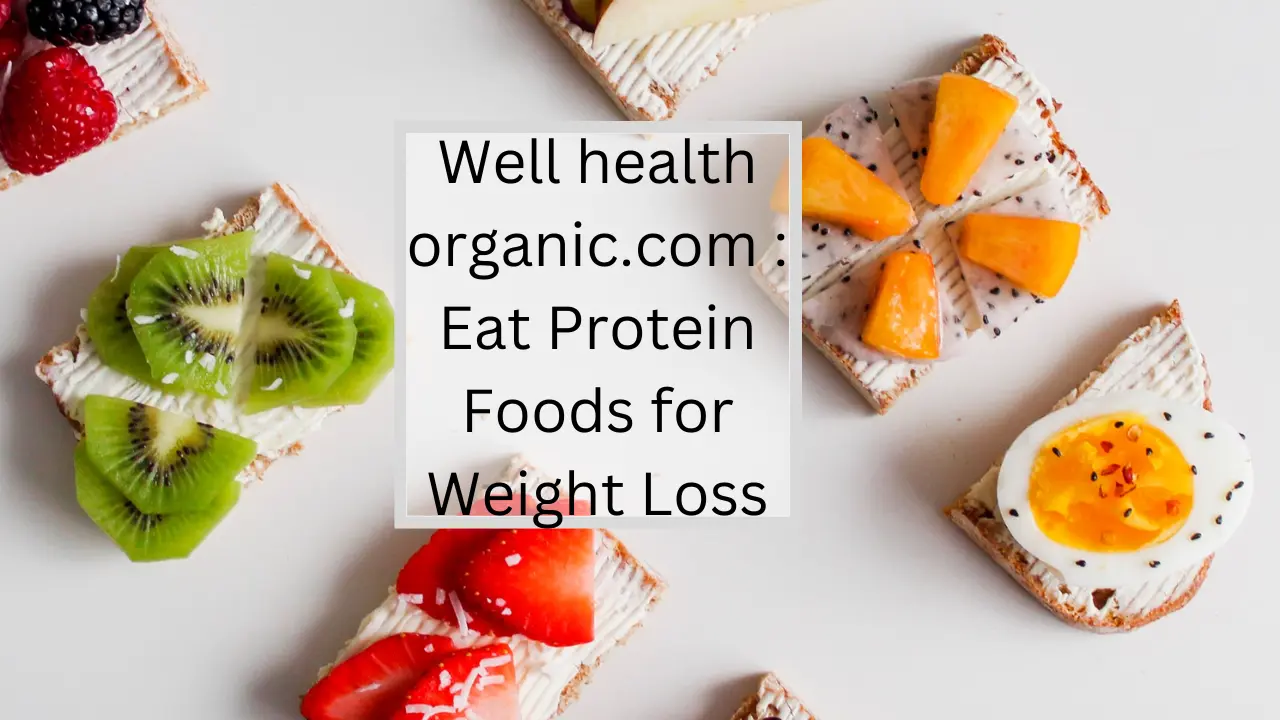
Wellhealthorganic.com : eat protein foods for weight loss is one of the most effective ways to support weight loss and improve overall health. Proteins are essential macronutrients that not only help in building and repairing tissues but also enhance satiety, preserve muscle mass, and boost metabolism. If you’re on a weight loss journey, increasing your protein intake can make a significant difference. This article explains why protein is important and how to include it in your daily diet for optimal results.
Role of Protein in Weight Loss
Proteins have a unique ability to boost metabolism and reduce appetite, making them essential for weight loss. When you consume protein, your body expends more energy digesting it compared to fats or carbohydrates. This is called the thermic effect of food, and it means you burn more calories simply by eating protein. Additionally, high-protein diets help regulate hunger hormones, keeping you fuller for longer and naturally reducing your overall calorie intake.
Another critical aspect of protein is its role in preserving lean muscle mass. During weight loss, the body often sheds both fat and muscle. Consuming sufficient protein ensures that most of the weight lost comes from fat stores while maintaining muscle strength. This is crucial for maintaining a healthy metabolism.
Best Protein Foods to Include in Your Diet
Adding a variety of protein-rich foods to your diet is the key to success. Both animal-based and plant-based proteins offer unique benefits, so a balanced approach works best. Here are some excellent options:
| Food Item | Protein Content (per 100g) | Additional Benefits |
|---|---|---|
| Chicken Breast | 31g | Low in fat, versatile in recipes |
| Eggs | 13g | Rich in essential vitamins and minerals |
| Lentils | 9g | High in fiber, aids digestion |
| Tuna | 30g | Rich in omega-3 fatty acids |
| Greek Yogurt | 10g | Contains probiotics for gut health |
| Almonds | 21g | Source of healthy fats and fiber |
| Cottage Cheese | 11g | High in calcium, low in fat |
| Tofu | 8g | Versatile, suitable for various dishes |
| Quinoa | 4g | A complete plant-based protein |
Including these foods ensures that you receive the necessary amino acids and other nutrients that support weight loss and overall well-being.
How to Incorporate Protein into Your Diet
For the best results, distribute your protein intake evenly throughout the day. Start your morning with a protein-rich breakfast, such as scrambled eggs or a bowl of Greek yogurt topped with nuts and seeds. This helps control hunger and keeps you energized. At lunch and dinner, include lean proteins like chicken, fish, or tofu, paired with vegetables and whole grains.
Snacking on protein-rich options like almonds, cottage cheese, or boiled eggs is a great way to curb hunger between meals. These snacks not only provide energy but also prevent overeating at mealtime. For vegetarians or those seeking plant-based options, lentils, quinoa, and edamame are excellent choices that are easy to include in everyday meals.
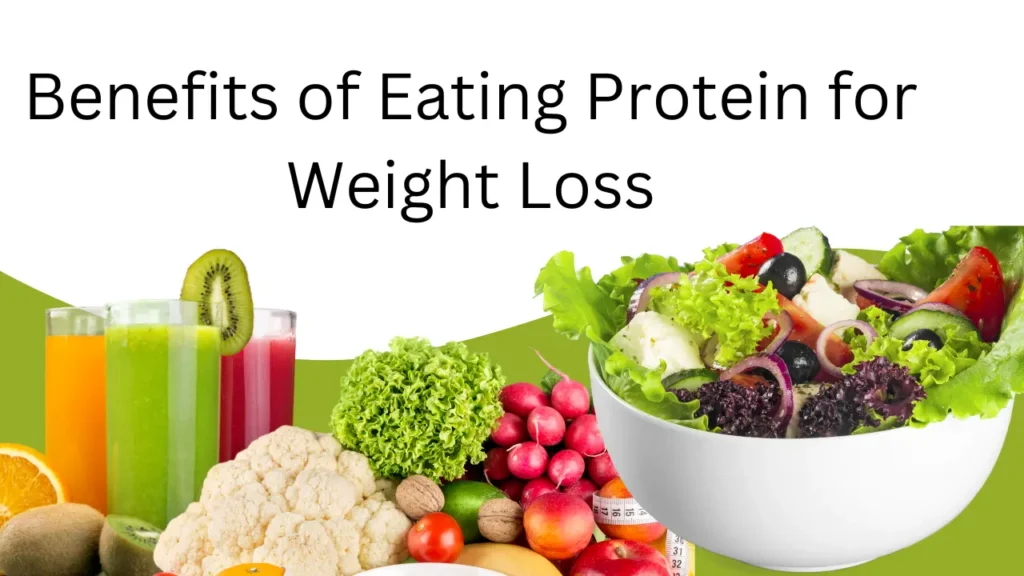
Benefits of Eating Protein for Weight Loss
Wellhealthorganic.com : eat protein foods for weight loss comes with numerous benefits beyond just shedding pounds. Proteins improve muscle strength and repair, ensuring that your body stays strong and functional. They also enhance satiety, making it easier to stick to a calorie deficit without feeling hungry. Additionally, protein helps stabilize blood sugar levels, reducing cravings and keeping energy levels steady throughout the day.
For those engaging in physical activity, protein is especially important. It supports muscle recovery after workouts, allowing you to build lean muscle while losing fat. A diet rich in protein can also help prevent the loss of bone density, an important factor for overall health as you age.
How Protein Helps in Weight Loss
- Thermic Effect of Food (TEF): Protein has a high TEF, meaning your body burns more calories digesting it compared to carbs and fats. This natural calorie-burning process contributes to weight loss.
- Hunger Control: Proteins influence hunger-regulating hormones like ghrelin and peptide YY. This makes you feel full longer, reducing the tendency to overeat.
- Muscle Preservation: During calorie deficits, the body can lose muscle. Protein intake helps preserve lean muscle mass, ensuring fat loss is prioritized.
Visit this website: XL Health India: A Comprehensive Guide
Why Protein is a Superior Nutrient
- Versatility: Protein sources come in various forms, from animal-based options like chicken, fish, and eggs to plant-based alternatives like lentils, tofu, and quinoa.
- Sustainability: Unlike fad diets, high-protein diets are sustainable because they allow you to eat satisfying, diverse foods.
Protein-Rich Foods for Weight Loss
- Animal-Based Proteins: Chicken breast, turkey, fish (e.g., salmon and tuna), and eggs are rich sources of protein. They are typically low in calories and fats, making them ideal for weight loss.
- Plant-Based Proteins: Lentils, chickpeas, tofu, and quinoa provide high-quality protein and fiber, which aid digestion and enhance fullness.
- Snacks and Dairy: Greek yogurt, cottage cheese, and almonds are excellent for snacking and can help prevent mid-day cravings.
Visit this website: Wellhealthorganic Vitamin B12: A Comprehensive Guide
Meal Planning for Protein Intake
- Breakfast: Start with high-protein meals like scrambled eggs, Greek yogurt with nuts, or a quinoa porridge.
- Lunch and Dinner: Include a lean protein (e.g., grilled chicken or tofu), paired with vegetables and a healthy grain like quinoa or brown rice.
- Snacks: Opt for easy-to-carry protein snacks such as boiled eggs, almonds, or a small portion of cottage cheese.
Visit this website: Beauty Glazed Eyeshadow Palette: Known For Its Beauty Mystery
Common Mistakes to Avoid
- Overeating Protein: While protein helps with weight loss, excess calories from any source can lead to weight gain. Portion control is key.
- Ignoring Plant-Based Options: Some people overlook plant-based proteins, but they provide additional benefits like fiber, which aids digestion.
- Neglecting Hydration: A high-protein diet can increase the demand for water in the body. Staying hydrated is essential to support kidney function and overall health.
Visit this website: HLF Fitness Guide to Health and Wellness
Balancing Protein with Other Nutrients
While protein is a powerful tool for weight loss, it’s important to balance it with other macronutrients and micronutrients. A healthy diet should include a variety of fruits, vegetables, whole grains, and healthy fats. These foods provide essential vitamins, minerals, and fiber, ensuring your body gets everything it needs to function optimally.
Over-relying on protein alone can lead to nutritional imbalances. For example, cutting out carbs entirely might leave you feeling fatigued and lacking energy. The best approach is to combine protein with other nutrient-dense foods in every meal. This creates a balanced diet that supports sustainable weight loss and overall health.
Things to Keep in Mind
While high-protein diets can be highly effective, they may not suit everyone. People with kidney problems or other health conditions should consult a healthcare professional before significantly increasing their protein intake. It’s also important to remember that eating more protein alone won’t guarantee weight loss. Regular physical activity, adequate sleep, and a calorie deficit are all critical components of a successful weight loss plan.
Visit this website: Sheera Recipe Guide: Sweet Delight for Any Occasion
Additionally, focus on the quality of the protein you consume. Choose lean meats, fresh seafood, and minimally processed plant-based proteins. Avoid processed options like sausages or breaded meats, as these can be high in unhealthy fats and additives.
Conclusion
Wellhealthorganic.com : Eat Protein Foods for Weight Loss highlights the importance of incorporating protein into your diet to achieve weight loss goals effectively. By including a variety of protein sources, such as lean meats, fish, eggs, legumes, and dairy, you can boost metabolism, curb hunger, and preserve muscle mass. Balancing protein with other nutrients ensures your body stays healthy and energized while shedding unwanted pounds.
Protein is a versatile and vital nutrient that plays a crucial role in weight management and overall health. With the right approach, you can enjoy delicious, protein-rich meals that support your journey toward a healthier you. Remember, consistency and balance are the keys to long-term success.
Visit this website: Bestadvise4u.com Health: A Guide to Wellness

